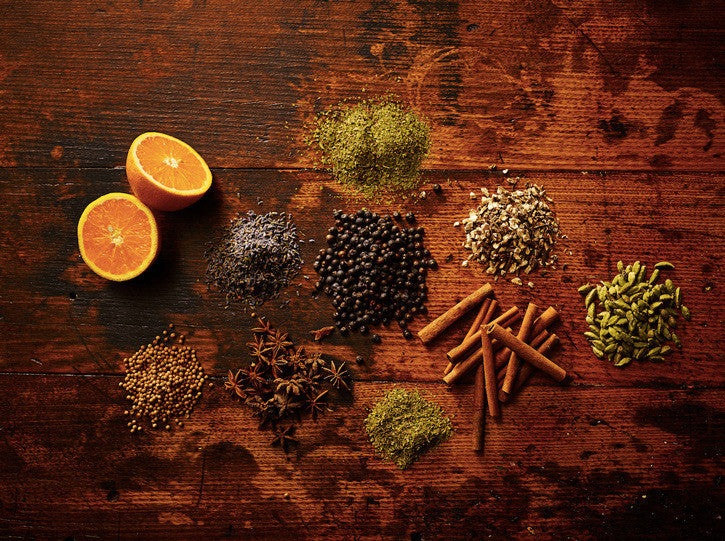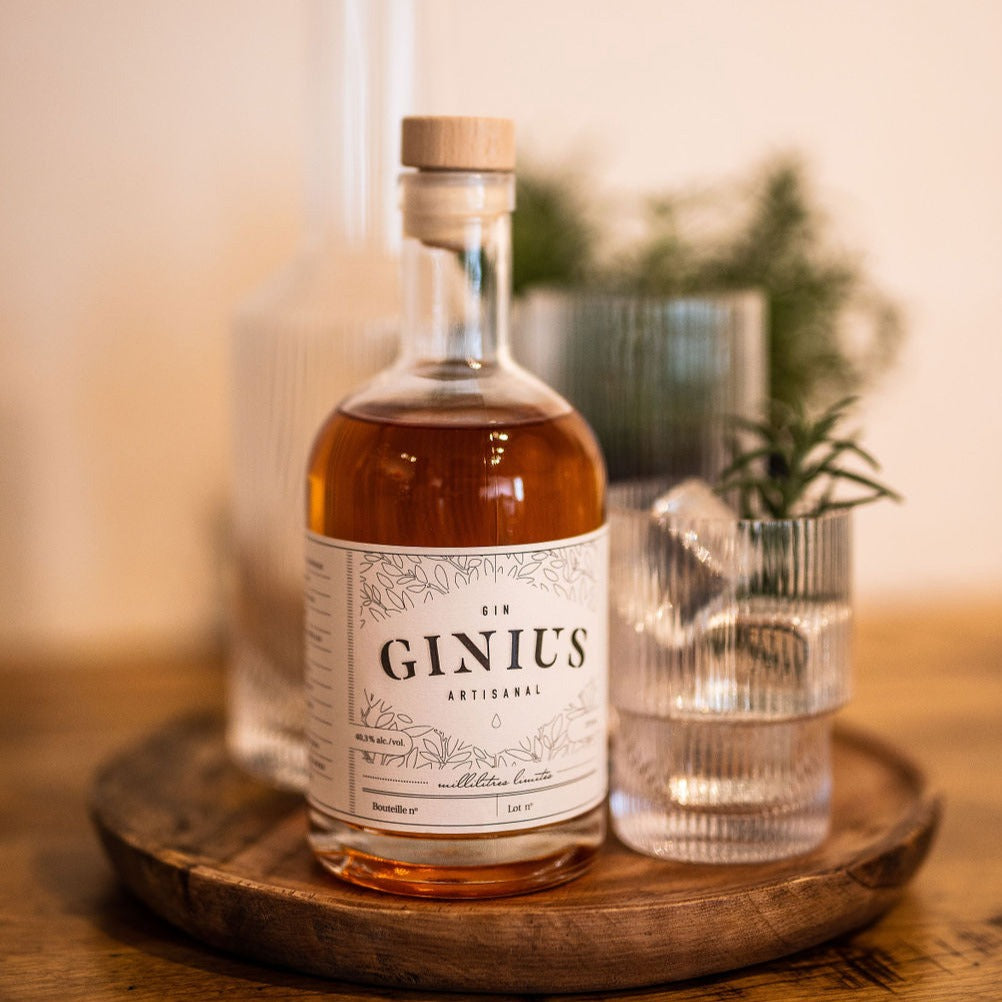Article: Herbs & spices, the key to success.

Herbs & spices, the key to success.
I'm often asked about the herbs and spices commonly used in gin production. There are as many recipes as there are distillers and gin producers. Each recipe remains secret regarding the ingredients, quantity, and location of the distillation process. A good example is our friends at Hendrick's who, exasperated by being asked about the contents of their precious liquid, produced a short video explaining the process and humorously revealing the recipe for their magic potion. Ginius, however, got his hands on the recipe and recreated it with the same quality ingredients, offering it in store. Why not try it?
To call a gin a gin, it is first necessary that more than 80% of the ingredients are mainly juniper berries but also coriander . The alcohol volume must vary between 35° and 50°.
There are two main varieties of gin. (*source Wikipedia)
Geneva (Dutch Gin)
Obtained by distillation of flours and fermented rye and corn then redistilled after the addition of aromatics: mainly juniper berries, coriander, fennel, cumin, licorice, anise, orange peel, almonds. Depending on the brands and their recipes. It is a very aromatic gin which can sometimes be aged in oak barrels having contained sherry, which gives it a straw yellow color (Yellow Gin). Too perfumed, Genever is rarely used in cocktails.
London Dry Gin (English Gin)
Gin does not have to be made in London to qualify for this designation. However, in England, gin distillers are not allowed to distill the base grain spirit (rye and corn spirit) themselves. They therefore purchase the base spirit (96% pure rye and corn spirit) and then have a choice of two methods for making gin:
- Redistil the base alcohol in the presence of various flavorings (including juniper);
-Or mix it with an aromatic alcoholate (“gin spirit”) and distilled water.
More lightly flavored, English gin is therefore more easily used in the composition of cocktails.

Here is a sampling of the main ingredients that are found mainly after juniper berries:
Orris Root, Licorice Root, Calamus Root, Orange and Lemon Peel, Lavender, Allspice, Black Pepper, Fennel, Rosemary, Yarrow Flower, Almonds, Cardamom, Cinnamon, Chamomile, Grains of Paradise, and a host of other exotic spices and herbs. Feel free to experiment and mix to create your own unique and distinctive flavors.
Good luck, you'll see it's exciting to create your signature.
Martin, Artisan GinMaker



